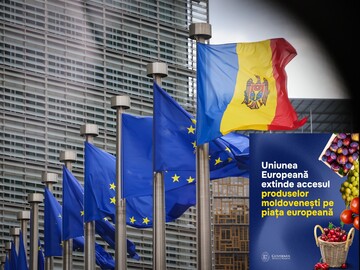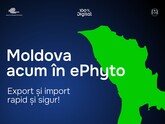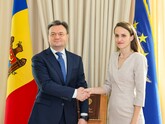
The EU is expanding access for Moldovan agricultural products by fully liberalizing imports of grape juice, tomatoes, and garlic from Moldova and increasing tariff quotas for plums, apples, grapes, and cherries
The European Commission announced this, noting that the European Union and Moldova have reached an agreement on the revision and updating of trade conditions within the Deep and Comprehensive Free Trade Area (DCFTA) between Moldova and the EU. It is emphasized that this marks an important step towards building stable, long-term and balanced trade relations, especially as Moldova moves forward on its path towards EU integration. The updated agreement aims to support Moldova's European aspirations while respecting the interests of the EU, in line with other trade agreements. As noted, although most Moldovan exports already enjoy duty-free access to the EU market under the existing EU-Moldova Association Agreement, the revised terms provide additional opportunities for both sides, taking into account the specificities of certain agricultural sectors. In particular, the EU has agreed to expand access for Moldovan agricultural exports that are not yet liberalized. Specifically, tariff quotas for plums, table grapes, apples, and cherries will be increased, taking into account recent trade volumes and Moldova's integration into the EU economy. This will increase export volumes while ensuring that Moldovan exporters can continue to supply at least the same volumes as during the period of the Autonomous Trade Measures (ATM). At the same time, imports into the EU from Moldova of grape juice, tomatoes, and garlic will be fully liberalized and exempt from duties (with the exception of a specific element in the entry price system for tomatoes). For its part, Moldova has agreed to improve access for certain agricultural products from the EU. Quotas for pork and poultry meat will be increased and new tariff quotas will be introduced for frozen boneless meat, milk and butter. New access to the EU market for Moldovan products will be conditional on the gradual alignment of Moldovan production standards with EU norms, for example, in the use of pesticides. This approach is consistent with the logic of Moldova's accession to the EU and the implementation of European legislation. Both sides will be able to activate a safeguard mechanism allowing them to take appropriate action if imports cause damage to one of the parties. In the case of the EU, the assessment of a possible violation can be carried out at the level of the entire Union or at the level of one or more member states. The agreement provides for a review in 2027, which will take into account Moldova's progress towards EU membership, the level of integration of its market with the EU market, the use of agreed trade quotas, and changes in production and import capacities. The interests and sensitive issues of both parties will also be taken into account. The EU countries and the European Parliament will be informed of the details of the agreement in the coming days. Once the agreement has been finalized, the EU and Moldova will start the procedures for its official approval. On the EU side, the European Commission will soon submit a proposal to the EU Council for a decision on the approval of the agreement. It will subsequently be formally approved by the EU-Moldova Joint Association Committee. As the Autonomous Trade Measures expired on July 24, 2025, trade will continue under the terms of the existing Deep and Comprehensive Free Trade Area until the updated DCFTA enters into force. Moldova and the EU signed an Association Agreement in June 2014, which has been in full force since July 2016. The Deep and Comprehensive Free Trade Area (DCFTA) is an integral part of this agreement. It provides duty-free access for most Moldovan goods, reduces tariffs for European companies exporting to Moldova, and makes customs procedures more efficient. In addition, the agreement promotes trade by gradually aligning Moldova's legislation, rules, and procedures with EU standards. On July 25, 2022, the EU introduced Autonomous Trade Measures to support Moldova's economy, which has been affected by Russia's aggression against Ukraine. The conflict disrupted Moldova's traditional export routes, many of which passed through Ukraine. The Autonomous Trade Measures were extended twice and expired on July 24. These measures helped Moldova reorient its trade towards the EU by providing practical support. As a result, Moldova's exports to the EU increased from €1.8 billion in 2021 to €2.2 billion in 2024. The European Commission noted that it had consistently sought to conclude a long-term agreement on mutual tariff liberalization with Moldova, ensuring a smooth transition to a new framework in which all trade arrangements would be integrated into the updated DCFTA. // 25.07.2025 – InfoMarket.







